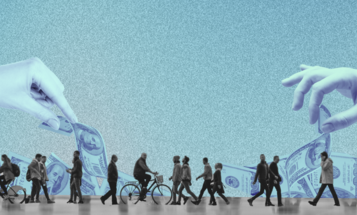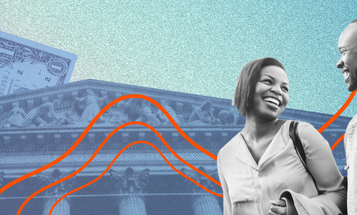
Do America’s Rich Know That They are Rich?
Recently, the economist Richard V. Reeves exhorted America’s rich to stop pretending that they are not rich. He made several important points in that essay, but he missed or downplayed the possibility that America’s rich may not be fully aware of how rich they are. As a presidential candidate, Mitt Romney once said that he made “not very much” in speaking fees, although he had made nearly $400,000 in fees the prior year. The year Romney made that remark, his earnings from speeches were equivalent to the total income of 7 average American households. Most Americans consider $400,000 a lot of money. Romney was running to be president to address the needs of the American people, yet he showed little evidence that he knew who these people were.
As with Romney’s comments, I was struck by Paul B. Brown’s essay for the New York Times’ “Wealth Matters” column. Brown states, “I know what wealthy is. And I know my wife and I are not.” He also adds, “We now have a little bit of extra income. And because we are hopelessly middle class, there isn’t anything outlandishly expensive that we want to spend it on.” Brown suggests that because he and his wife don’t own his-and-her 747s or one of the 25 largest yachts in the world or a $4 million car, they are not wealthy. Brown has been hired by people who do own these things, so these are not random examples.
Brown may not be an extravagant conspicuous consumer, but I have no doubt that he is rich. At a time when most Americans struggle to pay for college and have to go into debt to do so, Brown and his wife have paid for 4 children to attend “very expensive” (his words) colleges. He and his wife give thousands of dollars to their children each year. The amount they give is less than the $28,000 tax-free limit for transfers to children, but he and his wife are wealthy enough that they could give this amount to each of their children if they wanted to. In other words, the Browns have at least $112,000 that they could give away to their children without causing any reduction in their standard of living. Whether the Browns know it or not, they are rich. For people in the middle class, having an additional $100,000 or more in their bank accounts would not be considered “a little bit of extra income.”
Many Americans might wonder how people like the Mitt Romneys and the Paul B. Browns of the world could not know that they are rich. How could Brown call himself “hopelessly middle class”? I think part of the story—not all of it—is America’s wealth inequality and economic segregation. The Browns spend much of their time insulated from the lives of most Americans who earn far less than they do, and most Americans aren’t acquaintances with individuals who own his-and-her 747s.
The economist Robert H. Frank explains what is happening in his discussion of “The Vicious Circle of Income Inequality.” He writes, “So as the rich get richer, the talented people they patronize get richer, too. Their spending, in turn, increases the incomes of other elite practitioners, and so on.” Brown is one of the elite practitioners, hired by the super rich. Frank adds, “The wealthy have been spending more on gifts, clothing, housing, celebrations and other things simply because they have more money. Their extra spending has shifted the frames of reference that shape demand by others just below them.” Brown has not tried to engage in conspicuous consumption on the scale that he has seen among his clients, but his frame of reference for what qualifies one as rich has been distorted by these super rich clients.
All of this matters because the super rich and the rich have a disproportionate influence on public policy. As Frank writes, “Greater income and wealth in the hands of top earners gives them greater access to legislators. And it confers more ability to influence public opinion through contributions to research organizations and political action committees.” If rich people like Romney and Brown think that the average American has hundreds of thousands of dollars in disposable income, then the public policies they think are necessary to help the “middle class” differ from if one knows that many in the middle class would struggle to come up with $400 in an emergency.
I am not criticizing Paul B. Brown or his family. I am just using his example to make the point that America is a highly segregated society. Not only are we socially isolated among those who share our political views and racially segregated in our neighborhoods, we are also economically divided. If we are to make effective public policy for all Americans, we have to acknowledge that we have a lot to learn about how other Americans who are different from us live.



